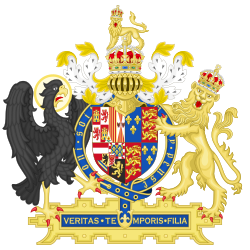This article needs additional citations for verification .(April 2025) |
| Act of Parliament | |
 | |
| Long title | An Act repealing all Articles and Provisions made against the See Apostolick of Rome, since the twentieth Year of King Henry the Eighth, and for the Establishment of all Spiritual and Ecclesiastical Possessions and Hereditaments conveyed to the Laity. |
|---|---|
| Citation | 1 & 2 Ph. & M. c. 8 |
| Territorial extent | England and Wales |
| Dates | |
| Royal assent | 16 January 1555 |
| Commencement | 12 November 1554 [a] |
| Repealed | 28 July 1863 |
| Other legislation | |
| Amends | See § Repealed enactments |
| Repeals/revokes | See § Repealed enactments |
| Amended by | Act of Uniformity 1558 |
| Repealed by | Statute Law Revision Act 1863 |
| Relates to | First Statute of Repeal |
Status: Repealed | |
| Text of statute as originally enacted | |
The Second Statute of Repeal (1 & 2 Ph. & M. c. 8) or the See of Rome Act 1554, was an act of the Parliament of England passed in the Parliament of Queen Mary I and King Philip in 1555, followed the First Statute of Repeal (1 Mar. Sess. 2. c. 2) of 1553. The first statute had abolished all religious legislation passed under Edward VI and the second statute built on it by abolishing all religious legislation passed against the papacy from 1529 (the fall of Cardinal Thomas Wolsey [1] ) in Henry VIII's reign. It was supported by the landed classes as it allowed them to keep the monastic land which they had acquired after the dissolution of the monasteries.